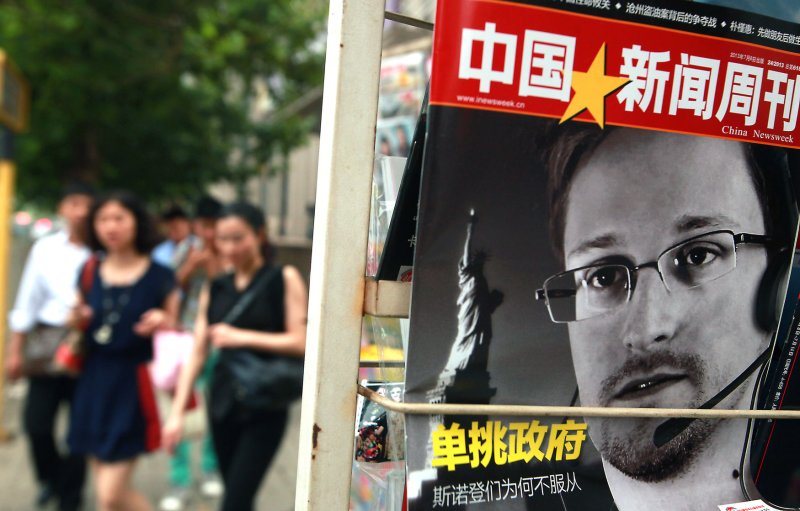China's version of Newsweek magazine featuring a front-page story on American intelligence leaker Edward Snowden is sold at a news stand in Beijing on July 8, 2013. The White House issued a blistering criticism of China over its decision to let Snowden leave Hong Kong recently, saying by doing so it has hurt U.S.-Sino relations. UPI/Stephen Shaver |
License Photo
WASHINGTON, July 10 (UPI) -- The Chinese government said Wednesday it was frustrated with U.S. cybersecurity issues but would not let it derail talks on more pressing matters.
Chinese and U.S. diplomats convened in Washington this week for their annual round of strategic and economic dialogue. U.S. Secretary of State John Kerry and Treasury Secretary Jacob Lew are hosting this year's round of negotiations in Washington.
The bilateral talks are viewed as a follow up to last month's meetings in California between President Obama and Chinese President Xi Jinping. Both sides in California expressed frustration with North Korea's nuclear ambitions.
China's official Xinhua News Agency said in a Wednesday commentary the aim of the dialogue was to solve "across-the-board" issues that would have regional and global implications. The state-run news agency said talks would "hopefully" facilitate a better relationship between the two world powers.
Both sides have agreed on a wide range of security and economic issues, though tensions have surfaced over cybersecurity. The U.S. Defense Department said it suspected the Chinese military of targeting sensitive military networks, a charge Beijing denies.
Xinhua said the cybersecurity issue should not overshadow broader concerns. It noted, however, it was "bizarre" for Washington to take a defensive line given espionage allegations revealed to the media by former security contractor Edward Snowden.
Snowden leaked information about a cyberespionage program dubbed Prism, said to have targeted foreign and domestic computer networks.





